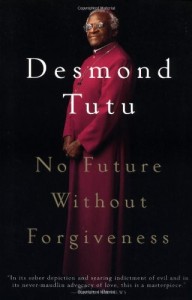Welcome to the Desmond Tutu Center’s Bookshelf. Here you will find descriptions of books we recommend along with web links for purchasing.
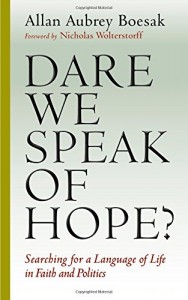 Dare We Speak of Hope?: Searching for a Language of Life in Faith and Politics
Dare We Speak of Hope?: Searching for a Language of Life in Faith and Politics
By Allan Boesak
The phrase “hopeful politics” has dominated our public discourse in connection with the inspiring rise of Nelson Mandela in South Africa and the remarkable election of Barack Obama as president of the United States. But what happens when that hope disappoints? Can it be salvaged? What is the relationship between faith, hope, and politics?
In this book Allan Boesak meditates on what it really means to hope in light of present political realities and growing human pain. He argues that hope comes to life only when we truly face reality in the struggle for justice, dignity, and the life of the earth. Dare We Speak of Hope? is a critical, provocative, prophetic — and, above all, hopeful — book.
Click here to purchase.
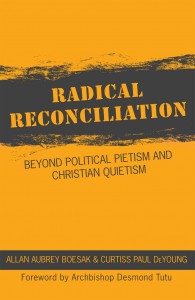 Radical Reconciliation: Beyond Political Pietism and Christian Quietism
Radical Reconciliation: Beyond Political Pietism and Christian Quietism
By Allan Aubrey Boesak and Curtis Paul DeYoung
This book calls for reconciliation in society that is radical, that goes to the roots. Too many initiatives for reconciliation, fail to remove the weeds of injustice at the roots, and thus stop short of completing the work required. Such political arrangements usually favor the rich and powerful, but deprive the powerless of justice and dignity. This is a form of political pietism, and when Christians refuse to name this situation for what it is, they are practicing Christian quietism. True reconciliation is radical.
In this book the authors a South African prominent in the struggle against apartheid, and a white U.S. theologian who has served in pastoral roles in multi-racial congregations offer a vision of reconciliation and social justice grounded in the biblical story and their own experience of activism. After re-examining the meaning of reconciliation in the biblical context, the authors examine Jesus role as a radical reconciler and prophet of social justice. They go on to examine the role of reconciliation in religious communities and in the wider society.
Click here to purchase.
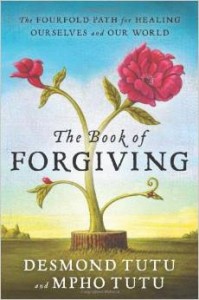 The Book of Forgiving: The Fourfold Path for Healing Ourselves and Our World
The Book of Forgiving: The Fourfold Path for Healing Ourselves and Our World
By Desmond Tutu
Archbishop Desmond Tutu, Nobel Peace Prize winner, Chair of The Elders, and Chair of South Africa’s Truth and Reconciliation Commission, along with his daughter, the Reverend Mpho Tutu,offer a manual on the art of forgiveness—helping us to realize that we are all capable of healing and transformation.
Tutu’s role as the Chair of the Truth and Reconciliation Commission taught him much about forgiveness. If you asked anyone what they thought was going to happen to South Africa after apartheid, almost universally it was predicted that the country would be devastated by a comprehensive bloodbath. Yet, instead of revenge and retribution, this new nation chose to tread the difficult path of confession, forgiveness, and reconciliation.
Each of us has a deep need to forgive and to be forgiven. After much reflection on the process of forgiveness, Tutu has seen that there are four important steps to healing: Admitting the wrong and acknowledging the harm; Telling one’s story and witnessing the anguish; Asking for forgiveness and granting forgiveness; and renewing or releasing the relationship. Forgiveness is hard work. Sometimes it even feels like an impossible task. But it is only through walking this fourfold path that Tutu says we can free ourselves of the endless and unyielding cycle of pain and retribution. The Book of Forgiving is both a touchstone and a tool, offering Tutu’s wise advice and showing the way to experience forgiveness. Ultimately, forgiving is the only means we have to heal ourselves and our aching world.
Click here to purchase.
By Desmond Tutu
The establishment of South Africa’s Truth and Reconciliation Commission was a pioneering international event. Never had any country sought to move forward from despotism to democracy both by exposing the atrocities committed in the past and achieving reconciliation with its former oppressors. At the center of this unprecedented attempt at healing a nation has been Archbishop Desmond Tutu, whom President Nelson Mandela named as Chairman of the Truth and Reconciliation Commission. With the final report of the Commission just published, Archbishop Tutu offers his reflections on the profound wisdom he has gained by helping usher South Africa through this painful experience.
In No Future Without Forgiveness, Tutu argues that true reconciliation cannot be achieved by denying the past. But nor is it easy to reconcile when a nation “looks the beast in the eye.” Rather than repeat platitudes about forgiveness, he presents a bold spirituality that recognizes the horrors people can inflict upon one another, and yet retains a sense of idealism about reconciliation. With a clarity of pitch born out of decades of experience, Tutu shows readers how to move forward with honesty and compassion to build a newer and more humane world.
Click here to purchase.
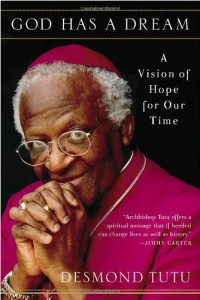 God Has a Dream: A Vision of Hope for Our Time
God Has a Dream: A Vision of Hope for Our Time
By Desmond Tutu
Nobel Laureate Desmond Tutu has long been admired throughout the world for the heroism and grace he exhibited while encouraging countless South Africans in their struggle for human rights. In God Has a Dream, his most soul-searching book, he shares the spiritual message that guided him through those troubled times. Drawing on personal and historical examples, Archbishop Tutu reaches out to readers of all religious backgrounds, showing how individual and global suffering can be transformed into joy and redemption. With his characteristic humor, Tutu offers an extremely personal and liberating message. He helps us to “see with the eyes of the heart” and to cultivate the qualities of love, forgiveness, humility, generosity, and courage that we need to change ourselves and our world.
Echoing the words of Martin Luther King, Jr., he writes, “God says to you, ‘I have a dream. Please help me to realize it. It is a dream of a world whose ugliness and squalor and poverty, its war and hostility, its greed and harsh competitiveness, its alienation and disharmony are changed into their glorious counterparts. When there will be more laughter, joy, and peace, where there will be justice and goodness and compassion and love and caring and sharing. I have a dream that my children will know that they are members of one family, the human family, God’s family, my family.’”
Addressing the timeless and universal concerns all people share, God Has a Dream envisions a world transformed through hope and compassion, humility and kindness, understanding and forgiveness.
Click here to purchase.
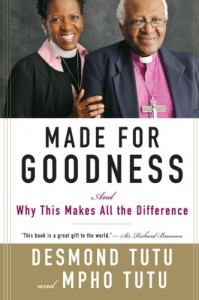 Made for Goodness: And Why This Makes All the Difference
Made for Goodness: And Why This Makes All the Difference
By Desmond Tutu
Over the years the same questions get asked of Desmond Tutu, the archbishop, Nobel Peace Prize winner, and veteran of the moral movement that ended apartheid in South Africa: “How can you be so hopeful after witnessing so much evil?” “Why are you so sure goodness will triumph in the end?” This book is his answer.
Now, more than any other time in history, our world needs this message: that we are made for goodness and it is up to us to live up to our destiny.
We recognize Archbishop Tutu from the headlines as an inspirational figure who has witnessed some of the world’s most sinister moments and chosen to be an ambassador of reconciliation amid political, diplomatic, and natural disasters. Now, we get a glimpse into his personal spirituality—and a better understanding of the man behind a lifetime of good works. In this intimate and personal sharing of his heart, written with his daughter, Episcopal priest Mpho Tutu, Tutu engages his reader with touching stories from his own life, as well as grisly memories from his work in the darkest corners of the world. There, amid the darkness, he calls us to hope, to joy, and to claim the goodness that we were made for. Tutu invites us to take on the disciplines of goodness, the practices that are key to finding fulfillment, meaning, and happiness for our lives.
Click here to purchase.

